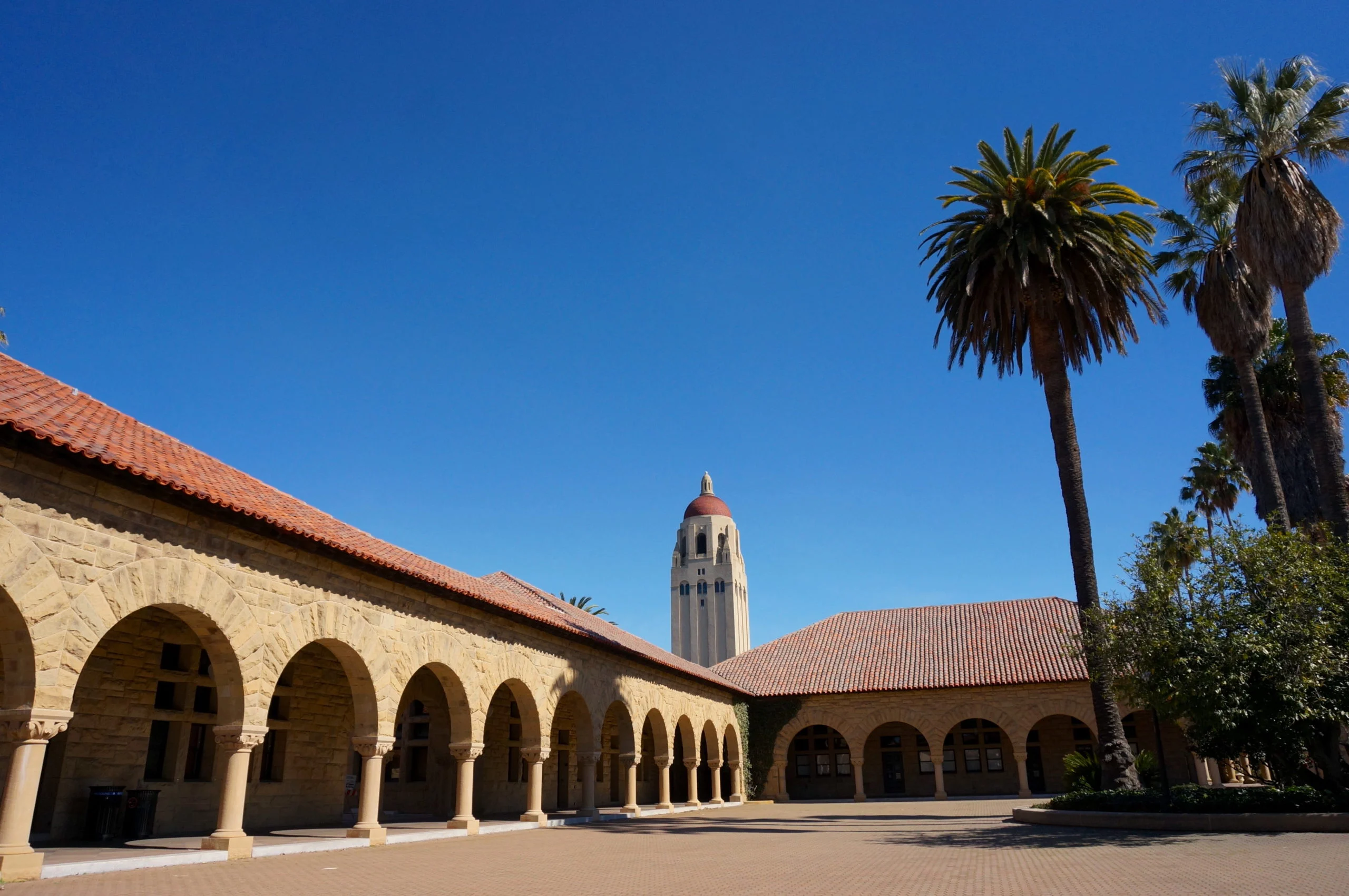Stanford University administrators have a choice to make about whether or not they want to respect political speech and action on campus. On Monday, the University will host a hearing of eight students who participated in a June 5 protest action. The protesters’ aim that day was to push University officials to seriously consider the students’ request for divestment from companies that profit from the war in Gaza and Israel’s illegal occupation of the Palestinian territories.
The “Stanford 13,” which includes these eight students, face a number of sanctions as determined by the Office of Community Standards (OCS) panel, up to and including extreme measures such as a one-year suspension or even expulsion. However, there is another way forward that prioritizes reparation and understanding.
Until now, University administrators — including current President Jonathan Levin, Provost Jenny Martinez, Associate Dean Michael Szeto and Associate Vice Provost Samuel Santos — have chosen coercion, exclusion and alienation, evicting students from their housing, suspending them from classes and disallowing them from participating in campus community spaces which are critical to their well-being. Stanford administrators’ embrace of a politics of domination and control has solidified their position as colonial actors on unceded Muwekma Ohlone lands that they have continuously expropriated and extracted from since 1885.
The University’s punishment of students for participating in much-needed political action places Stanford on an institutional terrain of public and private offices that refuse to take action for Palestinian life. Student action is vital in a society which has not yet responded to the millions of people in the U.S. alone who have taken to the streets, town halls and congressional hearings and have disrupted congressional, vice presidential and presidential speeches. Rather than engage with students about our collective moral responsibility to end the genocide in Palestine, University administrators have instead chosen to silence students via campus bans and conditional access to educational activities.
When Stanford banishes students from campus and entraps others in prolonged conduct cases, it alienates us from our peers. These excessively harsh policies have generated an atmosphere of confusion, stress and isolation on campus. We — the broader Stanford community — are no different from these students who have dedicated consistent energy to push for tangible change from institutions that are unresponsive to the people’s demand for a free Palestine.
Despite Israel’s escalated efforts to violently remove every Gazan from their land and steal land from the West Bank and Lebanon, Stanford administrators continue to obstruct us from engaging with the students at the frontline of political awareness and action. By removing these students from the campus community, the University asks us to see ourselves as different from these socially-concerned students. Yet these are the students who make the many of us, who are so heartbroken by the genocide of Gazans, feel an ounce of belonging on this campus. Stanford can only go on with business as usual, funding research and weapons for Israel’s genocide against the Palestinian people, if we are alienated from our peers — if we do not work alongside one another in genuine community.
When we talk about the University’s punitive response to the “Stanford 13” as “adequate consequences for harm caused,” we distract ourselves from what this hearing is really about. There have been and continue to be countless people at Stanford who have gotten away with sexual harrassment, rape, violation of labor rights, exploitation of subcontracted workers, exploitation of graduate student workers and the circulation of misleading scientific information. From Stanford’s history of inaction, it seems like administrators are only inclined to impose consequences for harm when outside actors threaten the University’s status and capacity — whether that’s a federal investigation, a national labor board review, or — in the case of Palestine — congressional hearings by the House Committee on Education and the Workforce.
When Stanford’s president and its administrators penalize students for violating the “purpose of the university,” they obfuscate the real issue at hand: the mass murder and displacement facilitated by Stanford funds and research. President Jonathan Levin’s argument that “the university’s purpose is not political action or social justice,” but “discovery and learning,” must have been unbelievable to the many School of Education faculty who have written on the purposes of the university — and even to Levin himself. As I have stated, we do not learn in a vacuum. What we do at Stanford impacts real people every day, and we each carry a responsibility for the structural consequences of our actions.
President Levin and other administrators need not continue to repress student action. Across the U.S., university officials’ responses to pro-Palestinian student protest have ranged from acceptance and negotiation to violent objection. Stanford leaders can seek out guidance from empathetic leaders in California, like Sacramento State President Luke Wood, who faithfully supported students’ right to demonstrate and agreed to a policy of divestment. Following engagement with students’ protests, President Wood directed his investment team to ensure their funds do not and will not include investments in genocide. Other leaders Stanford could look to include Jeff Jackanicz, president of the San Francisco State Foundation, who thanked students for their meaningful engagement in a workgroup that agreed to divest from three implicated arms dealers and shift away from other problematic environmental and social investments.
At Monday’s OCS hearing addressing the actions of the “Stanford 13,” Stanford students, alumni, faculty and staff should call on the University to protect political speech and activity, bring back our students and community members and engage in good-faith conversation about tangible actions for investment responsibility. The students who protested by occupying the President’s office keep us honest and connected to our responsibilities in the world. We need them as full participants in our campus community.
Natasha Patel ’16 is a Ph.D. candidate in political science at Stanford University.
